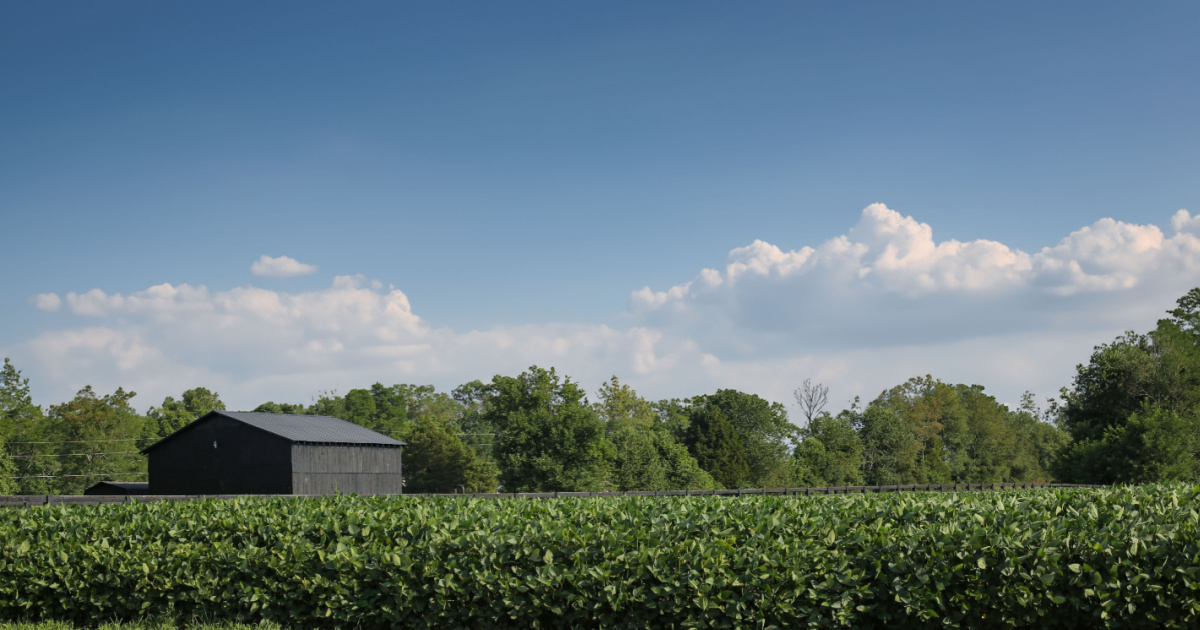Environmental Stewardship Advisory Committee
Posted on Aug 9, 2024A new addition to a traditional program, as the organization looks to the future.
LOUISVILLE, Ky. – For nearly as long as Kentucky Farm Bureau (KFB) has been in existence, so has a system of advisory committees created by the organization to bring forth policy ideas related to state agriculture commodities, and rural community issues.
These advisory committees are comprised of volunteer leaders and agriculture leaders throughout the state who have some affiliation or connection with the respective commodity or sector.
Through the years, as the ag industry has changed, the need has risen to develop new committees. The most recent addition is the KFB Environmental Stewardship Advisory Committee.
KFB President Eddie Melton said staying current when it comes to these committees helps to move the organization forward in serving as the Voice of Kentucky Agriculture.
“We are fortunate to have so many dedicated members and industry experts who serve on the various advisory committees we have at KFB,” he said. “Their willingness to serve helps provide valuable information and input when it comes to developing policy that ultimately benefits our entire ag industry.”
Melton added that as more attention has been paid to environmental issues over the past few years, it was a natural step to create the Environmental Stewardship Advisory Committee.
“As farmers, we have always known of the care we give our natural resources that sustain our lives on the farm,” he said. “This committee will help us to be even better stewards, educate us on new and existing issues, and lead us to adopt policy that will aid in our advocacy efforts.”
KFB State Director Larry Thomas chairs this new advisory committee and said while meetings are just getting started, there are some goals that are already in place.
“As we begin, this committee is searching for what their vision needs to be and what direction to go in, but we want to help the farmer and make sure they are protected,” he said. That's part of what Farm Bureau policy does, protect the farmers of Kentucky and that’s our number one goal.”
Thomas, who also serves as the current chair of the Kentucky Ag Water Quality Authority said Kentucky farm families have long been at the forefront of protecting their natural resources by a number of means, including updating their Ag Water Quality Plan.
“It’s important that farmers with 10 acres or more develop or update these plans as they continue with other conversation practices, such as no-till production and the use of cover crops,” he said. “Kentucky was one of the pioneers of no-till farming in the western part of the state and it has caught on and spread, across the Commonwealth. I feel like we've always been progressive and always tried to do a good job when it comes to caring for our natural resources. We're also a big wheat growing state, so cover crops seem like a natural thing in areas where they work.”
As environmental topics have changed over the years, so have their discussions on and off the farm. One of those this committee is discussing extensively deals with carbon issues.
“I’m hearing a lot about carbon offsets, CO2, carbon credits, and what farmers are doing to help alleviate those problems,” Thomas said. “By using things like no-till production, cover crops, and computers in our equipment to get the right product in the right spot at the right time and the right amount, then farmers know we're doing a better job protecting the environment and we can get credits for that. And some farmers are making some pretty good money offsetting their income by selling those credits.”
KFB Commodity Division Director Renee Carrico staffs this group and said with new programs and regulations related to the environment being created, it was important to allow those in the Kentucky’s ag industry to have as much information as possible when it comes to developing policy and understanding the complexities of many of these government regulations.
“We have had a Natural Resources Advisory Committee for years, but for the better part of a decade, we've had a plethora of federal regulations, as well as incentive programs come about related to how we're farming and how we're treating the environment,” she said. “And while our existing committee focuses on working with local conservation districts, or programs such as the Environmental Quality Incentives Program (EQIP), our Natural Resources Conservation Service (NRCS) programs, or state cost share programs, there just really didn't seem the right fit for that committee to handle some of these other issues we are seeing on a national or global level.”
From that need came the Environmental Stewardship Advisory Committee that has brought together producers and ex-officio experts in the field to look at these federal programs to make sure KFB policy lines up and that farm families are able to take advantage of the programs, and federal dollars associated with many of them, using them for practices they often are they’re already doing.
Carrico said that these members represent a diverse group of knowledgeable and experienced people who have brought much value to this advisory committee.
“We have producers, educators, businesspeople, and nationally recognized experts who bring so much perspective to this committee,” she said. “At the same time, whether seasoned in the industry or just beginning their journey, they are all willing to explore and learn about new ideas. That can mean nothing but success as we join an already proven group of advisory committees.”
Thomas said working together is key to the success of this committee and seeing, through his years spent on the KFB board and in various other roles including the Kentucky Ag Water Quality Authority, how effective these partnerships can be.
“Getting all the players in one room working together talking about the issues affecting agriculture, it seems pretty important to me,” he said.

Comments